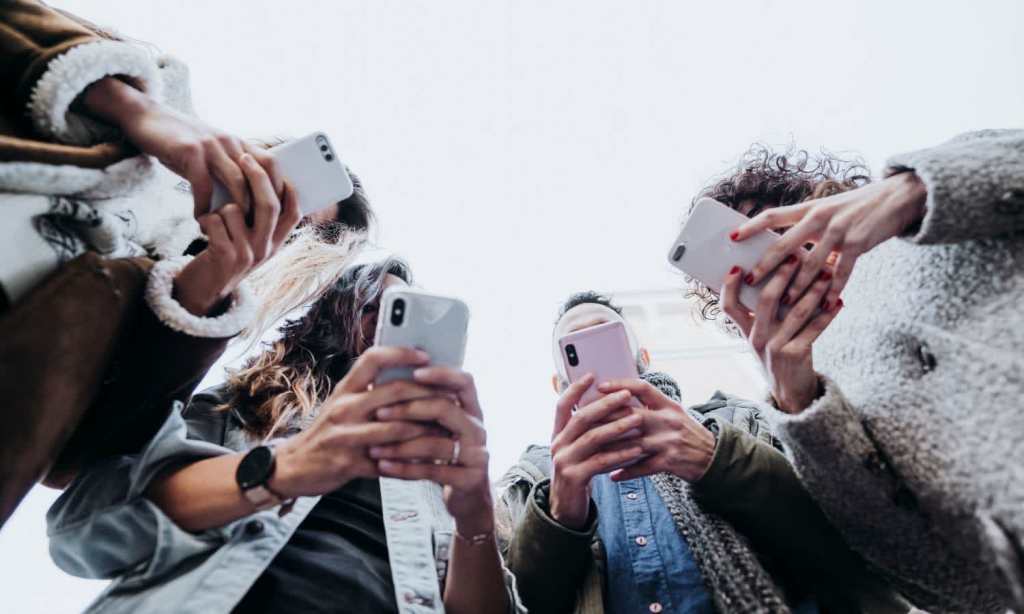Last week, I was sick for seven days. I was unable to go to work, I couldn’t get out of bed and I was just generally rundown. This meant that I had to have a weekend at home.
Now, I’m not one who worries too much if I don’t have something on, especially as we are still navigating the new normal with the global pandemic, however, social media seems to have exploded with parties, events and general sunshine and end of year fun.
While I am perfectly content with being on my own on a Saturday night, it was seeing everyone on Instagram having a wonderful time that would send my anxiety through the roof. What was I missing out on? Should I be out with everyone else? Where should I go? Who should I call? The mind chatter was endless.
Back in October, Meghan Markle called social media “addictive”.
“There are very few things in this world where you call the person who’s engaging with it ‘a user’,” she said. “People who are addicted to drugs are called users and people who are on social media are called users.
“There is something algorithmically that is in there that is creating this obsession that I think is very unhealthy for a lot of people.”
In my opinion and personal experience, the Duchess was right. I felt like I was addicted.
So, with this, and knowing that I would be spending the weekend alone, I knew I needed to do a social media detox.
The Social Media Detox
I tasked myself with switching off Facebook and Instagram from Friday night to Sunday night and set a timer on my iPhone. That should do it. The only thing was that most of my messages come through Instagram DMs and Facebook Messenger.
According to Tim Hill, co-founder and CEO of Social Status, “‘social media’ refers to messaging platforms too,” he told me during a chat. “So, a social media detox also involves disconnecting from the primary communication channels most of us use to stay in touch with friends and family.”
Being one of my main sources of messaging, I allowed myself the grace of staying logged in, but for this reason only. No mindless scrolling through the grid, no story watching and definitely no posting (I mean, what would I post anyway?). I knew this was going to be difficult but I was ready to take the plunge.
“While taking a detox generally suggests there’s an underlying problem or addiction, it doesn’t have to be,” Hill said. “Taking time away from one or multiple social media channels can be an interesting experiment to conduct on yourself to observe your behaviour. Instead of opening your favourite social channel, what do you do instead? Are your activities still screen-based or do you find yourself more present in the physical world? Because social media is so integrated into most of our lives, it might be enlightening to rediscover what you did before social media existed.”
So, what did I learn?
My Key Learnings
— I turn to my phone even when I’m watching a movie and have to physically remove the phone from my reach to ensure that I’m not always grabbing it.
— There were a few times that without even thinking, I would pick up my phone to look at it. For no reason at all.
— I found myself looking at LinkedIn more times than I’d care to admit.
— I opened up a book (Where the Crawdad’s Sing by Delia Owens) and read it. It was amazing and I highly recommend it.
— Not being able to see what others were doing was not only refreshing, but I didn’t have any fear of missing out, my anxiety was at an all-time low and I actually slept better.
Is a Short “Detox” Worth It?
According to Hill, having a detox of this kind is good for “interrupting in-grained behaviour”.
“Even on a short timeframe, monitoring what you do instead and how you feel can still be insightful and lead you to take other actions like a longer detox or maybe it will equip you with the inspiration you need to make more permanent changes to your daily routine,” he said.
In my humble opinion, only good things came from doing this exercise and if you’re thinking of doing it yourself, I’m a huge advocate for it.
Read more stories from TheLatch— and follow us on Facebook.

